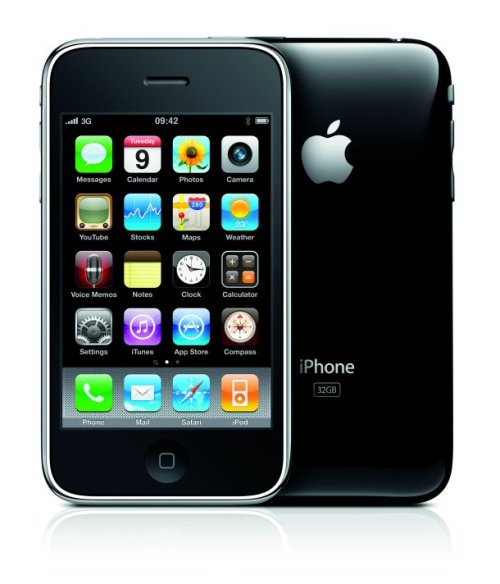Why more businesses should be buying iPhones

Minority Report: Letting users choose Apple kit is good for everyone
Though many workers love Apple's iPhones and notebooks, corporate policy often prevents them from using them in the office. Seb Janacek argues why this is wrong - and why user preference should be included in all corporate IT procurements.
"People mutht be amuthed... they can't be alwayth a-working, nor yet they can't be alwayth a-learning." - from Hard Times by Charles Dickens
A recent column on silicon.com prompted an active response from readers. The columnist, silicon.com editor Steve Ranger, proposed that the time had come for corporate users to choose their own IT kit.
No more Dells, hello MacBooks. Bye-bye BlackBerry, ciao iPhone.
The article followed a report claiming that while corporate CIOs acknowledged the superiority of Apple products, they usually ended up buying from Dell or RIM.
According to the Frost & Sullivan report, European CxOs expect their hardware to be reliable rather than packed with fancy capabilities.
The analyst house said: "They perceive reliability as the core function of their laptop/notebook, with all other features being secondary."
This chimes with another comment I saved from a 2008 ComputerWorld article about iPhone adoption:
"I have nothing against iPhone. It's great," Manjit Singh, CIO at Chiquita Brands International, is reported as saying. "But we're a BlackBerry shop, and I don't think iPhone brings anything new to the table. It has a great user experience but that's all."

Should workers be allowed to choose an Apple iPhone for work?
Photo credit: Apple
"That's all"? Wow.
According to the Frost & Sullivan report, battery life and ease of use are perceived as the most important features of smartphones.
Fine, so battery life on the iPhone is not great, it's not even within driving distance of 'great'. But ease of use? Seriously?
I've been using a BlackBerry at work now for about three months. I dislike it even though it does exactly what it's meant to do - give me access to corporate emails and calendars. It simply does so begrudgingly.
What little joy it had as a device has been sucked from it by my organisation's overly draconian corporate IT policy. Camera disabled, Bluetooth disabled, ditto GPS, MMS and media player. It's impossible to personalise and the device locks after a few minutes, demanding I type a long alphanumeric multi-case password on its horrible little keyboard. The system messages are often incomprehensible.
Also, as an iPhone user it took me at least a week to stop touching and swiping the screen and expecting something to happen.
I've read that the devices have been called 'CrackBerrys' because of the obsessive behaviour they induce in their users. After three months with one, the only reason I can imagine it got this moniker is because early models leaked liquid crack through the keyboards, through the user's skin and into the blood stream... (continued on page 2...)
Many of the reader comments on Steve Ranger's article dispute the idea of giving corporate users the choice of device, arguing it leads to increased support costs and lost productivity.
While I don't agree with the proposal 100 per cent, it does raise an excellent point about user advocacy and the increasing move away from monolithic IT decision-making based on the three pillars of cost, security and reliability.
The key word here is 'user' - effectively a customer for an organisation's technology base.
As a general rule when one wants to improve user experience, it means making tasks simpler.
As a concept this is not difficult. As a model for technology procurement it lands us in tricky territory.
Or are CrackBerrys a tough habit to break?
Photo credit: RIM
'Better' and 'simpler' are slippery concepts to capture in a business case for a new handset - they are qualitative whimsy and not quantitative units of cost. But it would be worth the extra effort for businesses to pin them down and include them as criteria in the assessment process for corporate kit.
Technology in the workplace is all-consuming. It's only natural that people want more than reliability and ROI. They want ease of use, simplicity and even, whisper it, delight.
You might well find the latter two qualities deliver the former two. After all, making gadgets easier to use might leave users with more time to do productive things.
The iPhone is already sneaking into the corporate space. Back in 2008 silicon.com asked top CIOs their smartphone of choice and the iPhone came out on top for "diversity" and for being a "fantastically usable" device.
So the moral of the story for corporate IT?
Make superior user experience a part of the procurement process for new kit.
In fact, put the user at the centre of the business case. If you already do, then bravo! Push it even further up the agenda.
If we need to have a standard build then fine, we understand the importance of standards. They're great. All we, the users, are asking for are better standards - meet us halfway.
When buying IT for a business, ask: Is it easy to support? Will it save us money? Is it secure? Will it make it easier to get to business-critical data? Will people get a kick out of it?
Humans are the lifeblood of the organisation; the biggest ticks on the company asset sheet; the competitive edge.
So go on, be an investor in your people.
And "that's all", folks.